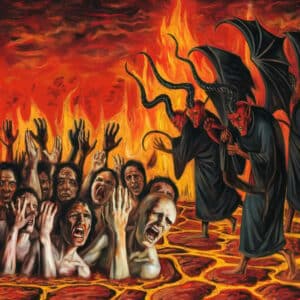

Catholic Bible Interpretation has been translated into 742 languages as of 2022. The New Testament has been translated into additional 1617 languages. To millions of Catholics, the Bible is the most comprehensive and authoritative source of the Christian doctrine.
The Catholic Church just as with every other denomination has a set of rules and guidelines on how the Bible should be interpreted. The ‘hermeneutics’ as they’re referred to have provisions on the interpretations of the Bible that would be deemed acceptable. At the heart of hermeneutics is accepting the fact that there could be internal inconsistencies and contradictions when it comes to interpreting the Bible. This is in addition to the fact that there are different versions of the Bible.
What Bible Does the Pope Use?
Catholic Bible Interpretation that the Pope uses is called the Vulgate which is also the official Latin translation of the Holy Book. This Bible used by the Pope has specifically been designed for one sole purpose.
The Vulgate was used for thousands of years and was considered the most influential Edition even among Western Christians.
What Bible Do Catholic Churches Use?
Catholic Churches use The New Revised Standard Version, Catholic Edition (NRSV-CE). This is based on The New Revised Edition which was first published in 1989.
Some scholars could argue that The New Revised Standard Version, Catholic Edition (NRSV-CE) is the definitive English translation of the Latin Vulgate Bible. It covers authoritative documents such as the Catechism of the Catholic Church.
The NRSV borrows heavily from King James Version Tradition. The first King James Version can be traced all the way back to 1611. It was a culmination of over eight decades of thorough scholarship pioneered by William Tyndale.
The 1970s so the archeological discovery of old manuscripts. This heralded a major revision by British and American scholars.
Do Catholics use the King James Bible?
There is no law or doctrine that forbids Catholics from owning or using Kings James Bible. However, Catholics might see it fit to use the same Bible that priests use during mass. It’s not uncommon to find whole sections in libraries dedicated to Catholic literature, more specifically Catholic Bibles.
It’s worth noting that those that wrote King James Bible were under the instructions of King James 1. The goal was to provide an accurate translation of the Bible that was in synch with the theological teachings in England at that time.
The main bone of contention with the King James Bible is the omission of Deuterocanonical books. The Catholics read a lot from these Books on different occasions in the liturgical year. Such Books also have a lot of intonations that are familiar with the Catholic Church while openly rejected by Protestants. That is why it only makes sense for Catholics to use a Bible they’re familiar with.
Do Catholics Read The Bible?
There is a lot of criticism of how Catholics approach the Bible. On one hand, there is disagreement by protestants on how Catholics should handle the Bible, on the other, there are accusations of approaching the Bible with blinded faith. The scripture is the central rite of the Catholic faith and every mass is profoundly biblical in approach. In fact, mass brings the word of God to life.
The argument that Catholics don’t read the Bible has been for a long time propagated by views on half-truths. No one used to read the Bible before the advent of the printing press and Catholics are no exception. Catholics might not approach Bible matters like other denominations but they certainly read it.
Does the Catholic Church read the Bible literally?
Catholics and Christians at large have always wanted to know whether or not it’s still important to believe in transubstantiation and the origin of sin in order to be devoted to the word of God. According to Pope Benedict XVI, there is no need of insisting on the literal interpretation of the scripture.







